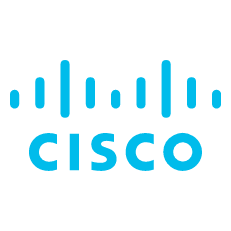|
|
||
|---|---|---|
| .. | ||
| CiscoASA-AddIPtoNetworkObjectGroup | ||
| CiscoASA-CreateACEInACL | ||
| CiscoASA-CreateInboundAccessRuleOnInterface | ||
| CustomConnector | ||
| Images | ||
| readme.md | ||
readme.md
Cisco ASA Logic Apps connector and playbook templates
Table of Contents
Overview
Cisco Adaptive Security Appliance (ASA) Software is the core operating system for the Cisco ASA Family. It delivers enterprise-class firewall capabilities for ASA devices in an array of form factors - standalone appliances, blades, and virtual appliances - for any distributed network environment. ASA Software also integrates with other critical security technologies to deliver comprehensive solutions that meet continuously evolving security needs.
This integration allows to automate response to Azure Sentinel incidents which contain IPs. It contains the basic connector component, with which you can create your own playbooks that interact with Cisco ASA.
It also contains 3 playbook templates, ready to quick use, that allow direct response on Cisco ASA from Microsoft Teams.
Prerequisites
Authentication
The custom connector supports basic authentication. In Cisco ASA create a local user and allow it to use the REST API. Depending on the playbook used the user needs to be able to add members to a network object group or create access control entries, by default that requires privilege level 15.
Options to establish a connection with Cisco ASA
The connector needs to be able to reach the Cisco ASA REST API. A few options are:
- Over the internet
- Using Logic Apps gateway
- Secure tunnel between your network and Azure
Over the internet
You can make the Cisco ASA REST API available to the internet. You can use IP filtering to restrict access. To find the IP addresses that need access, go to your Logic App instance and go to properties. The field 'Connector outgoing IP addresses' contains the IP addresses Azure uses for your Logic App to call the connector. Logic Apps also needs to be able to validate the SSL certificate used.
Using Logic Apps gateway
On a server in your network install the on-premises data gateway, see Install on-premises data gateway for Azure Logic Apps. The server on which the data gateway is installed needs to be able to reach the Cisco ASA REST API. Also the SSL certificate used by the Cisco ASA REST API needs to be able to be validated on the server, including the certificate chain. When deploying the Cisco ASA connector choose the option via on-premises data gateway. When using the connector you will be asked to select the data gateway you want to use.
Secure tunnel between your network and Azure
Create an Azure Virtual Network and connect it to your on-premise network using Azure VPN, for a sample see Sample configuration: Cisco ASA device (IKEv2/no BGP). When creating the Logic App make sure to select the option 'Associate with integration service environment'. When the Logic App is created you can connect it to the Azure Virtual Network. See (Connect to Azure virtual networks from Azure Logic Apps by using an integration service environment Connect to Azure virtual networks from Azure Logic Apps by using an integration service environment (ISE)] and Access to Azure Virtual Network resources from Azure Logic Apps by using integration service environments (ISEs) for documentation.
Deployment instructions
1. Deploy the custom connector
Custom connector should be deployed in the Resource Group where the playbooks that will include it are located. There are two options for the custom connector, one not connecting via on-premises data gateway and one connecting via on-premises data gateway.
Connector not via on-premises data gateway
- Deploy the Custom Connector by clicking on "Deploy to Azure" button. This will take you to deplyoing an ARM Template wizard.
- Fill in the required paramteres:
- Connector name: Please enter the custom connector(ex:Cisco ASA connector)
- Service Endpoint: The URL to the Cisco ASA REST API

Connector via on-premises data gateway
- Deploy the Custom Connector by clicking on "Deploy to Azure" button. This will take you to deplyoing an ARM Template wizard.
- Fill in the required paramteres:
- Connector name: Please enter the custom connector(ex:Cisco ASA connector)
- Service Endpoint: The URL to the Cisco ASA REST API

2. Deploy the required playbook template (or create your own playbook from scratch)
This integration offers 3 playbook templates that blocks IP in 3 different methods. Each one has it's own documentation an quick deployment button:
- CiscoASA-Add IP to Network Object Group
- CiscoASA-Create ACE In ACL
- CiscoASA-Create Inbound Access Rule On Interface
